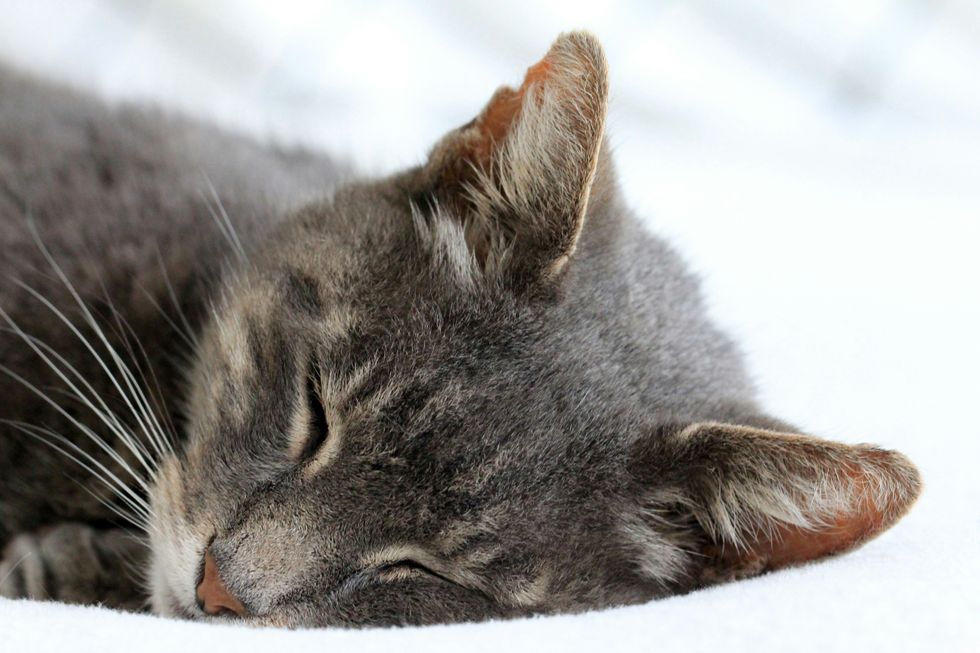09 April, 24

Here's how to take the best nap of your life
Cris Saur via Unsplash
I’ve Been Napping Wrong My Whole Life (And You Have Been, Too)
Growing up, I absolutely needed a nap after school. Waking up at 6 AM to go through a whole day of learning while stuck in the classroom was, quite frankly, exhausting. But once my head hit the pillow at approximately 3 PM, I’d be out for hours.
And while it felt glorious to tumble into a deep slumber after a long day of learning and high school drama, it became an issue. I couldn’t sleep at night, which made waking up harder, and then I’d need an after-school nap yet again.
This vicious cycle continued until I gave up on napping altogether. Because who wants to take one of those fake 15-minute power naps? It’s impossible for me to switch off my brain that quickly. By the time my alarm goes off a quarter of an hour later, I only managed one minute total. And I end up cranky.
Yes, I’m one of those types who requires complete silence while asleep. I need to be gradually woken up with a gentle tone, or else I react like a rabid animal. In fact, people are often scared to wake me up due to my unleashed wrath.
My options were at two drastically different ends of the spectrum: to nap forever, or not to nap at all. For years, I sadly opted to make myself as tired as humanly possible so I could sleep better at night.
But when that didn’t work, I realized napping may be my only option.
Why Am I So Groggy After My Naps?

Cat nap
Sandy Millar via Unsplash
There are a bunch of factors that play into the groggy, cranky, foggy post-nap feeling. It could be how long you’re napping. If you’re asleep for over an hour, your body has fallen into “slow wave sleep,” which is one of the deepest sleep stages. When you wake up after this, you’ll feel more tired than before.
That grogginess is known as “sleep inertia,” which can make you feel lightheaded, less alert, and even impair your vision. Waking up consistently at the same time can help with this, and so can natural lighting and gentle alarms.
If you’re the kind of person who has trouble not taking naps during the day, this could be why you’re excessively tired…Or it could be you’re not sleeping enough. If you’re having trouble finding what’s disturbing your naps, keep a weekly sleep log and track your habits.
How Long Is The Ideal Nap?

David Clode via Unsplash
When it comes to napping, finding the perfect length can be difficult. Falling asleep takes time, and often you’re more or less resting your eyes rather than sleeping. I know I’m not alone in these woes. According to the Sleep Foundation, the average nap is one hour long and 52.6% of nappers feel groggy after they wake up.
And we all know deep down that we shouldn’t take extensive naps…despite how good hitting REM may feel. In the same article, SleepFoundation.Org reports that ideal nap time is anywhere between 20-30 minutes.
Yes, that means the 15-minute power nap isn’t all it’s cracked up to be. But adjusting your nap length doesn’t mean you’re suddenly going to wake up feeling chipper and refreshed. There’s levels to napping correctly.
But taking a much-needed respite — even if you don’t fully fall asleep — can be helpful to improve your cognitive function and help improve your overall mood. So, yes, napping is good for you.
What Can I Do To Wake Up Feeling Refreshed After A Nap?

Caterina Saunders via Unsplash
Finally, the answer you’ve been searching for perhaps your entire life. Something about this feels serendipitous. We can successfully nap and wake up ready to take on the world. All it takes is a few helpful tips and adjustments.
Here’s how to take the best nap of your life:
Get a full night’s rest
It’s no secret that sleeping soundly throughout the night has a huge impact on how your day goes. It can boost your energy levels, which can affect your mental health, etc., etc. You’ll be more tired throughout the day if you don’t sleep at night, so aim for your eight hours.
Limit yourself to one nap a day
I know you may be utterly exhausted and dream about sleep forever…but aim to take one 30-minute nap in your day instead of intermittent napping. The more naps you take, the more likely you are to interrupt your nighttime sleep schedule.
Nap earlier in the dayThe later in the day you take your nap, the later you stay up. The ideal napping time is midday-ish because it’s won’t encroach upon your bedtime. From 1-3 PM, cognitive function typically lessens, so this is the optimal time for rest.
Wake up to natural lightingA mellow wakeup is the key to a great nap. Pick soft tunes as your alarm sounds like Bob Marley, or choose a sunrise-simulating alarm clock like Hatch. Hatch Clocks are fantastic because they wake you with a natural sunrise, but also have sleep sound functions to help you fall asleep.



